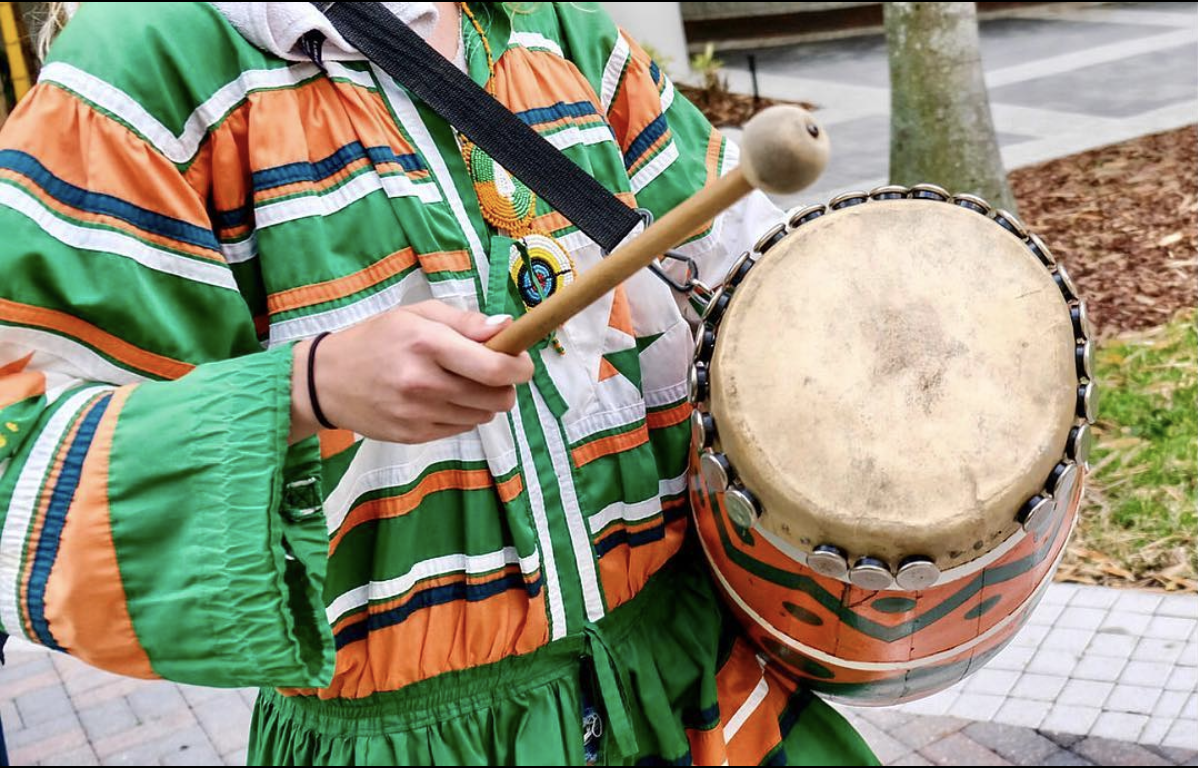While many contemporary organizations such as the Kansas City Chiefs and the University of Miami’s own Iron Arrow Society have made a public show of their relationships with native tribes in their locales, racist ideas of “Indian-ness” remain a central part of these organizations’ public image. In fact, there exists a decades-long set of scholarship against shallow representations of Natives in U.S. culture that organizations such as Iron Arrow and the Chiefs do not acknowledge or try to counter. As scholars Philip J. Deloria and Gerald Vizenor note with the publications of “Playing Indian” and “Fugitive Poses,” many of the stereotypical ideas of Native and Indigenous identity are still inculcated by mainstream culture.
The Iron Arrow Society, whose acts are often mired in extreme secrecy, and the Kansas City Chiefs, a 470 million-dollar business and entertainment enterprise, are both organizations that profit and indeed participate in the type of exoticizing that Gerald Vizenor calls “fugitive poses.” These are textual or graphic depictions steeped in stereotype aesthetics of romantic victimhood, tragedy or nostalgia. It is important to note that just because these organizations may have “relationships” with native tribes does not mean they are not guilty of racism. The Iron Arrow Society may simultaneously operate a very fruitful relationship with the Miccosukee tribe and commit racist acts of mimicry and appropriation that negatively affect Native Americans (including Miccosukee). Moreover, I am skeptical of the notion that any relationship between these organizations and native tribes are or could be equally beneficial since reproducing aesthetic stereotypes is inherently an act of cultural genocide.
The Kansas City Chiefs and Washington R*dskins neither acknowledge nor counteract their representation of a shallow (white) formulation of Native identity, one where peoples of different ethnic, socio-cultural, racial, national and tribal differences are abridged to the terms “r*dskin” (notably a slur) or “chief.” The expression of native-ness that broad and dubious terms such as “chief” and “r*dskin” foreground is and has always been based in first a racialization and second the on-going genocide of entire peoples. Further still, simply agreeing that these depictions are problematic and then working with tribal actors behind the scenes does not change that the referent terminology used by these teams is based on virulent racist logic. This is to say that working against racism necessitates abandoning this misnaming, this play of things which are Indian-ish, for profit.
American settler colonialism, by which I mean the historical debasement and on-going genocide of Native populations by the U.S. government or its proxies, is reproduced by The Iron Arrow Society, the Chiefs and the R*dskins. The appeal to ethnographic otherness that “chief” and “r*dskin” as well as the practices used by Iron Arrow, which include drum-beating and other Indian-ish rituals, gestures to what Deloria calls “playing Indian.” He writes, “Savage Indians served Americans as oppositional figures against whom one might imagine a civilized national Self. Coded as freedom, however, wild Indianness proved equally attractive, setting up a ‘have-the-cake-and-eat-it-too’ dialectic of simultaneous desire and repulsion.” Basically, the performance of Indian-ish ceremonies, wearing Indian-ish costumes, and creating ‘tribal’ cultures that are based in ideas of Indian-ness is both reductive, racist, and exoticizing. It is in the most obvious sense a cultural appropriation, even if the intention is admiration.
Both organizations ought to reflect and actively work against the American settler-colonial logic, which puts Native identity in a past-ness (a là tipis, chanting, drum-beating, loincloths, and spears) and erases the vast complexity of past and present Native American cultures. It is not only that no one in the R*dkins organization, Chiefs organization or Iron Arrow Society is native (though, this is a real and pressing problem). It is also that staging Indian-ish plays is neither generative for native self-sovereignty nor is it admiration. It is racism.
Preston Taylor Stone is a Ph.D student in the Dept of English at UM, where his research focuses on ethnic studies, queer studies and contemporary culture.







